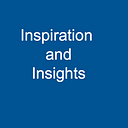Business & Cultural Awareness - Treating Trachoma in Ethiopia- in Conversation with Al B. Reid
With a track record of successful leadership as well as functional expertise in strategy formulation and business transformation, Al Reid possesses industry experience in various subcomponents of healthcare including medical devices, diagnostics, nutritional, pharmaceuticals and consumer products.
Al is collegial and partnership-oriented and has a broad understanding of global markets and business acumen. In this conversation he is sharing his efforts to treat Trachoma in Ethiopia.
Al, during your career you have had the opportunity to work in various locations around the world. Having experienced different cultures broadened your perspective — please share one of your overseas projects.
“One of the pleasures as a healthcare executive was being able to experience a lot of different cultures, people, and yes, also food, around the world. My last count, I worked in over 75 countries and no two countries were alike. The international work and business travel provided me with thorough experience in change management as well as with specialized expertise to complement and extend team capabilities in diverse business cultures, whether it was in Eastern Europe, parts of Africa, Latin America, or Southeast Asia.”
Can you tell us in more detail, a specific project you were a part of in Ethiopia?
“My goal in Ethiopia was to support a global health crisis related the treatment of Trachoma, a condition which often results in blindness. As part of the Carter Center delegation, our company provided critical diagnostic technology to evaluate and support patients in the Amhara region. This effort was in support of the annual Mass Drug Distribution by a global pharmaceutical company. Their goal was to eradicate Trachoma from the Amhara region. I witnessed some of the worst conditions — poor sanitation, inadequate housing, limited roads, and nonexistent medical care, all resulting in a dire situation. The combined efforts of local healthcare partners, a big pharmaceutical company and a medical device company provided effectiveness in the reduction and elimination of Trachoma over a five-year period. I especially took satisfaction in seeing the smiling faces of young and old after receiving treatment for Trachoma, as their smiles were worth the difficult trip to a very remote village.
“My role in this project was to facilitate the access to greatly needed diagnostic testing equipment for the Ethiopian medical community. I witnessed firsthand issues of equality and inequality in Ethiopia due to lack of availability to basic necessities such as clean water, adequate sanitation, access to medical care and poverty-stricken underclass. Each of the above contributed to underserved communities whose economic status was greatly impacted. These experiences taught me the importance of empathy and adaptability especially in tumultuous environments created by challenging events and circumstances.”
Thanks for sharing, Al.
